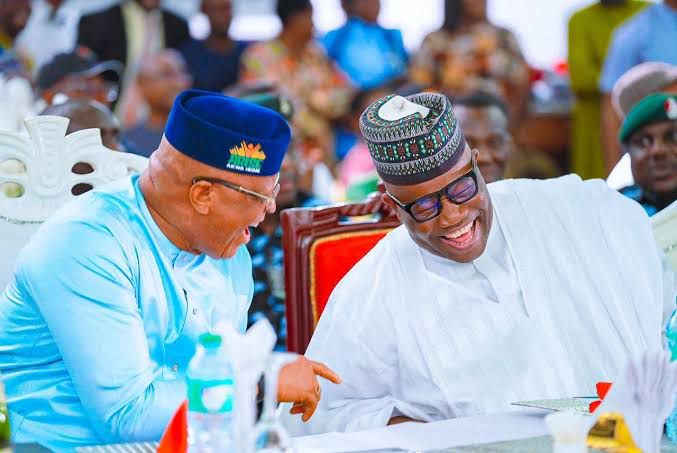Opinion
“Na My Turn To Chop Nor Good For Politics”, by Isaac Asabor

In the bustling neighborhood of Ogba, Lagos, I recently encountered a mechanic whose words have since lingered in my mind. As we talked about the challenges of daily life and the state of the nation, he remarked in pidgin, “Na my turn to chop nor good for politics.” This simple, yet profound statement encapsulates a critical issue plaguing Nigerian politics today; the dangerous mentality of self-enrichment at the expense of the public good.
The phrase “Na my turn to chop” has become a common and tacit refrain in Nigeria’s political discourse, symbolizing the entitlement mentality that drives many politicians to seek office. For too many, political office is seen not as an opportunity to serve the people, but as a means to personal enrichment. This mentality is often justified by the argument that it is “my turn” to benefit from the spoils of power, as if governance were a relay race in which the baton of corruption is passed from one politician to the next.
However, the mechanic’s statement, “Na my turn to chop nor good for politics,” challenges this notion. It is a reminder that this mindset is not only morally wrong but also fundamentally destructive to the nation’s progress. When politics is reduced to a feeding frenzy, the very purpose of governance, to improve the lives of the people is lost. The result is a cycle of poverty, underdevelopment, and social unrest.
This culture of “chop” politics manifests in various forms, from the embezzlement of public funds to the awarding of contracts to cronies without regard for competence or public interest. It is a culture that prioritizes personal gain over public service, and it is deeply ingrained in the fabric of Nigerian politics.
The consequences of this mentality are all too evident. Infrastructure projects are abandoned halfway, public institutions are underfunded, and basic services like healthcare and education are neglected. Virtually all Nigerians, who depend on these services, are left to bear the brunt of this mismanagement, while those in power live in opulence.
Yet, the irony is that this culture of self-enrichment ultimately harms everyone, including those who engage in it. When roads are left in disrepair, even the politician with the latest luxury car cannot drive comfortably. When hospitals are poorly equipped, even those in power must seek medical care abroad, at great expense. In essence, the selfishness that drives “chop” politics creates a society in which no one, not even the politicians themselves, can truly thrive.
It is time for a shift in mindset, both among the political class and the electorate. Politics should be about service, not self-enrichment. Leaders should be chosen based on their ability to deliver on their promises and improve the lives of the people, not on their capacity to “chop” the most. The electorate, too, must reject candidates who campaign on the basis of patronage and instead demand accountability and transparency.
The mechanic in Ogba was right, “Na my turn to chop nor good for politics.” It is a mentality that has held Nigeria back for far too long. If the nation is to move forward, this culture must be rejected in favor of one that prioritizes the common good over personal gain. Only then can Nigeria truly fulfill its potential and provide a better future for all its citizens.
Partisan politics, often referred to as “paddy-paddy politics” and “chop-I-chop politics,” has become a significant obstacle to good governance in Nigeria. This form of politics, where alliances are formed based on personal gain rather than the public good, prioritizes the interests of a few over the needs of the many. It fosters an environment where loyalty to political benefactors takes precedence over accountability to the electorate, leading to decisions that serve the elite rather than addressing the pressing issues facing the nation.
The consequences of such politics are evident in the stagnation of critical sectors like healthcare, education, and infrastructure. Instead of implementing policies that would benefit the masses, politicians are more concerned with securing their positions and enriching themselves and their allies. This “chop-I-chop” mentality has led to widespread corruption, with public funds being siphoned off to fund lavish lifestyles while ordinary Nigerians continue to struggle with poverty and lack of basic amenities.
Ultimately, partisan politics undermines the very essence of democracy, which is meant to be a government of the people, by the people, and for the people. When politicians engage in “paddy-paddy” alliances, they betray the trust of those who elected them, and the result is a cycle of bad governance that perpetuates inequality and hinders national development. For Nigeria to progress there needs to be a shift away from this destructive brand of politics towards a system that prioritizes the common good and holds leaders accountable to the people.























